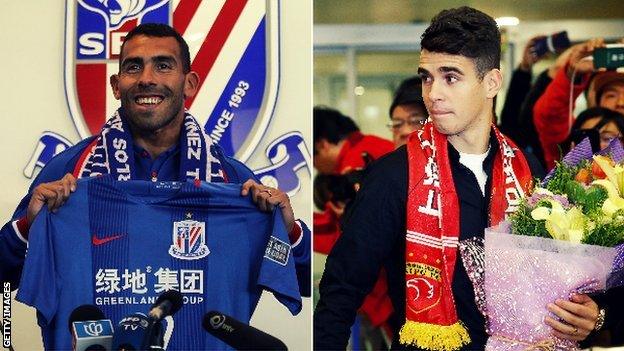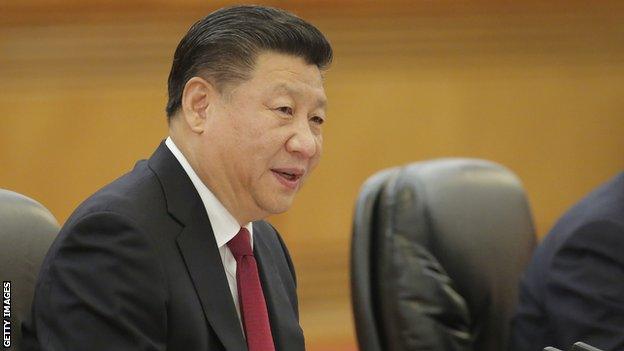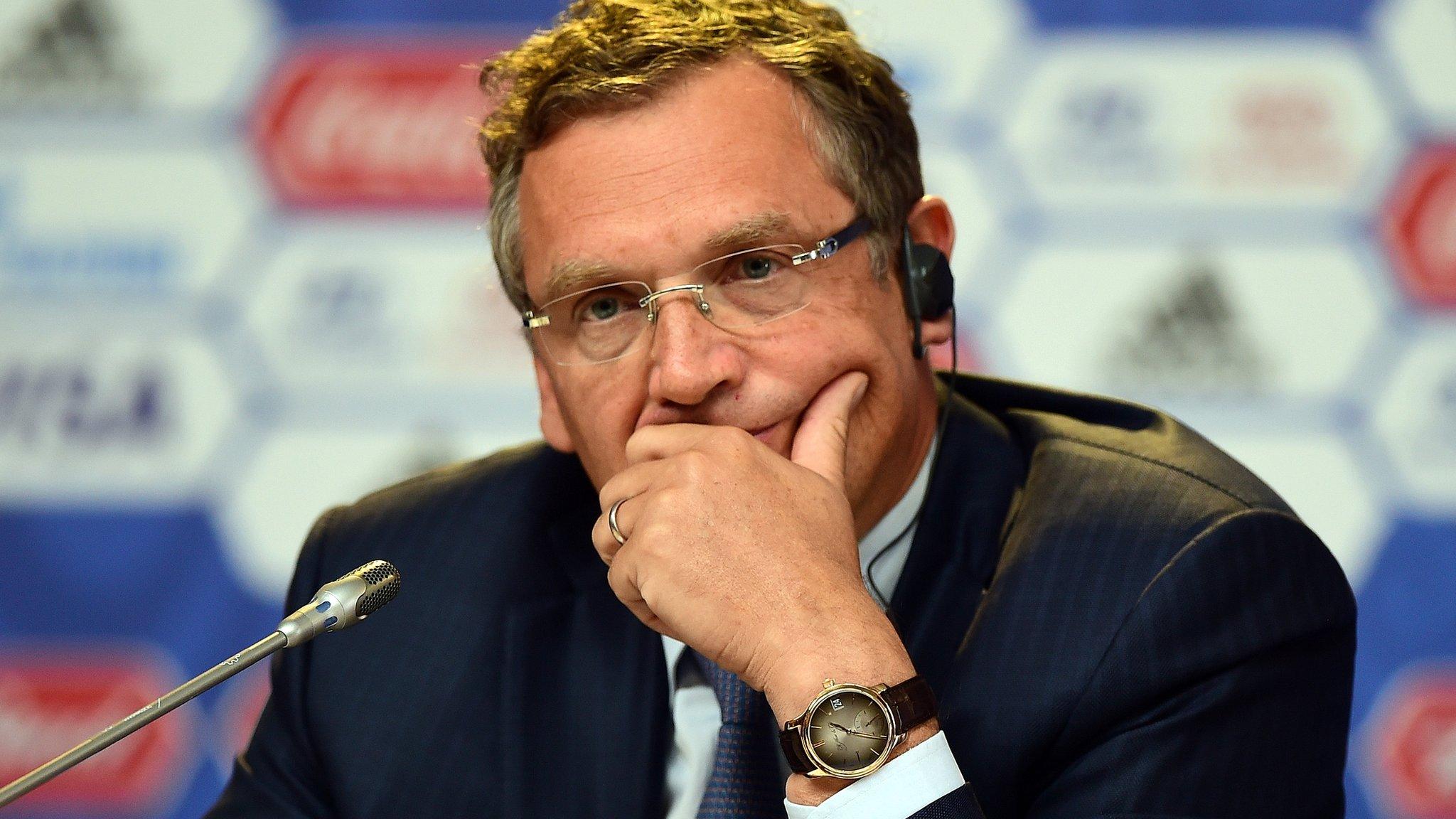Chinese Super League outspends Premier League as winter transfer window closes
- Published

Moves for Carlos Tevez and Oscar helped take Chinese Super League spending to a record
Chinese clubs spent £331m during the country's winter transfer window, outstripping the Premier League.
The country's winter window closed on Tuesday, with the 16 Chinese Super League clubs passing the £215m spent by England's 20 top-tier teams in January.
Oscar's move to Shanghai SIPG for about £60m and Shanghai Shenhua's reported £40m deal for Carlos Tevez came days before spending caps were announced.
Limits on the number foreign players in squads are in place for the new season.
Only three non-Chinese players can be fielded in a fixture when the season starts in March, a move the country's football association hopes will combat "irrational" spending.
But the total spend for the winter window - which ran from 1 January to 28 February - was a record for the Super League, exceeding the 2016 window by £36m.
Big movers, big spenders

Chinese president Xi Jinping earns a base salary of around £16,000 a year, while Carlos Tevez will reportedly earn around 19 times that in a week
The Chinese Super League's spending power came to prominence when 25-year-old Oscar agreed to leave Chelsea to join Shanghai SIPG for £60m.
It proved the biggest deal globally in the winter window but other notable Chinese moves saw Odion Ighalo join Changchun Yatai - a side who finished fifth from bottom last season - for £20m.
Belgium midfielder Axel Witsel, who was thought to be an Everton target, moved from Zenit St Petersburg to Tianjin Quanjian, where he will receive a reported £15.3m annual salary.
China's winter window runs for 28 days longer than those of European clubs. The country's spend was 16 times bigger than the total outlay in La Liga and more than the sum spent in Spain, Italy, Germany and France combined.
Ending the free-spending cycle
Figures obtained from Transfermarkt.co.uk, external show the total net spend of the Chinese Super League stands at £332m in 2017, a sizeable jump from about £25m in 2013.
When announcing intent to place limits on spending and foreign imports in early January, the government said clubs have been "burning money".
Their move to cool the habit proved controversial, with some clubs already boasting more than three overseas players in their squads, many of whom earn substantial wages.
Previously the rule was "4+1" - four foreigners of any nationality plus one Asian player in a matchday squad.
Quotas, caps and restrictions in a league quickly developing a reputation for its vast resources also go against the theory that some clubs' big-business backers are splashing out in hope of winning favour with President Xi Jinping, who has called for China to become one of the game's superpowers.
A sigh of relief for Europe?
The limits being applied to the Chinese transfer market may have already stopped some potential deals, with Tianjin Quanjian's chairman saying the club had dropped bids for Chelsea's Diego Costa, PSG's Edinson Cavani, Monaco's Radamel Falcao and Benfica's Raul Jimenez as a result.
Manchester United striker Wayne Rooney was strongly linked with a move to the country before committing to the EFL Cup winners.

Tianjin Quanjian claim they dropped bids for Edinson Cavani and Diego Costa due to rule changes
And big finance may not only threaten those outside of China. Guangzhou Evergrande - champions for six-straight years - have been drastically outspent in the winter window.
After spending controls were announced, the club managed by Luiz Felipe Scolari vowed to field a Chinese-only squad by 2020, a U-turn after years of success based on big-money foreign signings.
- Published22 February 2017
- Published28 February 2017

- Published28 February 2017
